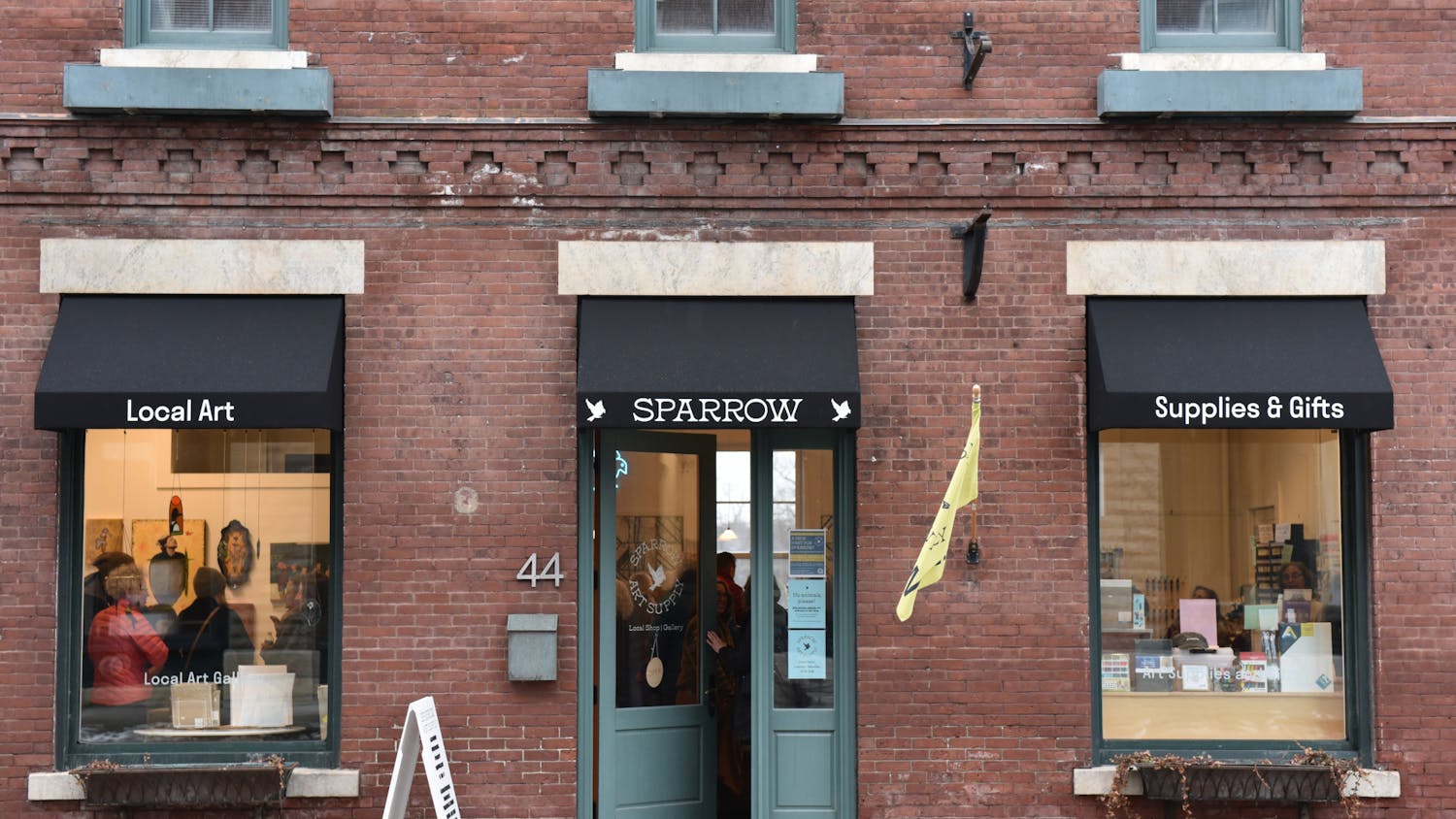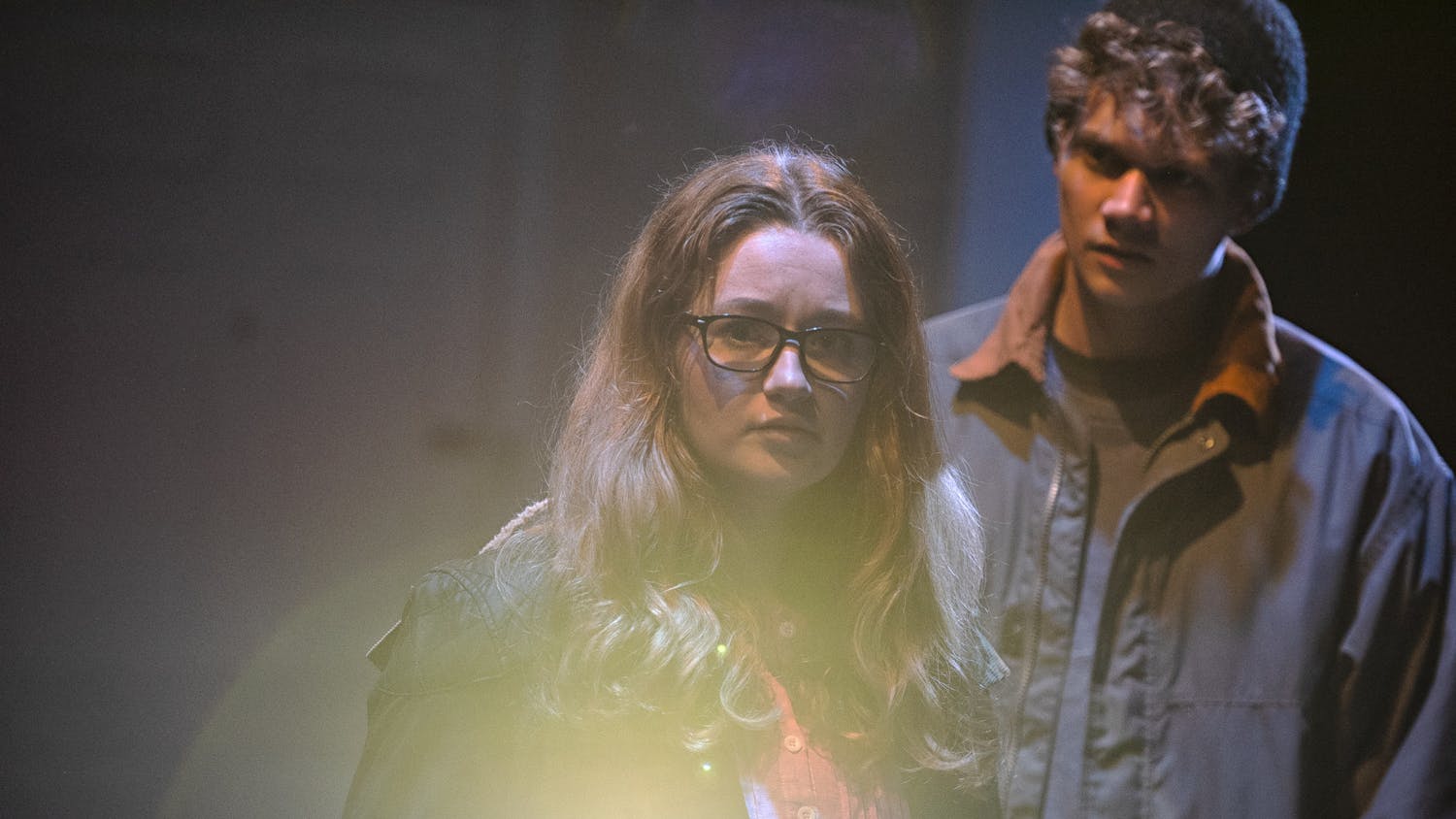Author: Andrew Brooks Staff Writer
On Sunday night, Tim Miller's spectacular performance piece "Glory Box" was unleashed upon audiences in the McCullough social space. Movement and narrative became intertwined to form Miller's experience as a homosexual man in the United States and his fight for equal rights in the political recognition of his long-term relationship.
As Miller moved through McCullough narrating his journey, the audience was guided through the past, present and future in the experience of being gay and living in the United States, Miller had the uncanny ability to create vivid imagery and emotions through spoken words and body movement.
Miller, who is a professor of Performance Art at the University of California at Los Angeles, has been writing and performing pieces for over 20 years. As a vocal member of the gay community, Miller has constantly had to fight an uphill battle in his quest for equal rights. One of the "National Endowment of the Arts Four", Miller had received a federal grant in 1990, but later had it overturned due to the gay themes and imagery of his pieces. Most recently, he and his Australian partner Alistair have had to deal with the United State's non-recognition of their relationship and subsequent separation due to immigration laws. This experience sits at the center of "Glory Box."
Miller's story begins as he introduces his relationship with Alistair, to whom the performance was dedicated. The performance was structured to build a viable base on which Miller could then present his and Alistair's, and ostensibly all gay and lesbian couples', inability to live in the United States with the same rights as heterosexual couples, and the emotional and spiritual strain that this lack of rights causes.
The first of many vignettes centered on Miller's first contact with the idea of a hope chest. As he morphed into his five year old self, the audience was told of his mother's hope chest and what it meant to her. Its initial description in the performance was that of a place where a young girl puts items for when she later marries a man. However, this description does not hold true for long.
As Miller vividly described the scene as a young boy getting naked in his mother's hope chest, he too got naked in the chest on stage. He seemed to subvert the traditional values that his mother had associated with the box, describing how as a boy he, "laid there and felt safe, full of hope."
Gliding to the other side of the performance space, he took the audience with him through time to when he and Alistair were moving the chest from his mother's home to their own. Through the story, the audience is told of how in Australia the chest is not called a hope chest, but a glory box. The idea of a hope chest begins to further metamorphose into a glory box, transforming into something more exotic, outside of the confines of this country's socio-political value system. It becomes a place where we can put our hopes, dreams and experiences, those things that have shaped who we are today and dictate where we are going in the future, irrespective of hetero- or homosexuality. It is thus that Miller reaches into his own glory box in order to continue telling his story.
What he creates is a moving love story that deals with trying to evade the misguided laws of a nation, all the while painting a picture about himself and his life experience. He tells of the present and having to deal with the fact that U.S. Immigration laws do not acknowledge his and Alistair's relationship. However, he does not get lost in his political message, as he again quickly transports the audience back to his childhood, this time to his nine year old self who gets "judgmental Twinkies smashed in my face." Miller is able to interject vivid moving images and a sharp political message with humor and jokes, allowing the piece to keep from stagnating in any one place, but continually progressing to its intended and carefully crafted end.
He recounts learning to say the words "I love you" to Alistair and comments on always getting his hand literally and figuratively slapped by the trials that he has had to face. Yet, despite all of the facets of the story, the audience is constantly being brought back to the scene where he and Alistair are slowly approaching the reality of having to face the immigration officials in the airport, by virtue of which, they have to put their love on trial in front of the government.
In his narration, Miller takes on the roles of others, but the audience is always aware that it is Tim Miller pretending to be someone else and not Miller taking on a separate character altogether. The performance is not one that necessitates different characters; instead, the performance is his life and the story of his love. His experience is made the spectacle, but the spectacle is such that the audience has the ability to relate to it and learn from it.
His performance becomes an ode to the strength of the lesbian and gay community and a testament to his and Alistair's experience.
The dénouement of the performance came as the audience was transported back to U.S. Customs, this time as Alistair is about to be called to the Customs official. It is here that everything that has come before in the story seems to come to a sharp point in the narrative. Will their love prevail over socio-political injustice?
It does not.
Alistair is not allowed through customs. In his recounting of the seen, Miller's emotion could be felt and scene through his raw and rough actions, his large gestures and the expression on his face. The audience is reminded that this is not a play and not a fabrication, but that it is Miller's life. It is an experience that his body and mind had gone through and will continue to go through with each performance.
The last item in the glory box, full of hopes and experiences, is a compass.
Bathed in warm orange lights and backed by blue, Miller tells of the compass that he has in his corporeal glory box. It is the compass in his chest, next to his heart, that will lead him and Alistair to a better place, a place where they can be accepted. The lighting served as a foil for his emotions, as his sonorous voice detailed the fact that in order to be together, he and Alistair would have to leave the country.
It was at this point that Miller's final message became painfully evident, that by association, his country was rejecting him based on his homosexuality and his same-sex partner Alistair.
'Glory Box' Relates Relationship, Politics
Comments



